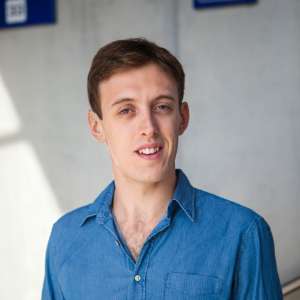It’s the first Tristan und Isolde in the history of the Festival d'Aix, at the Grand Théâtre de Provence. Quite simply, a historic Tristan – at least musically.
From the start of the prelude, Sir Simon Rattle and the London Symphony Orchestra launch themselves into open sea in foggy weather. Here a moment of calm, there reefs, here again spray. Limbo, fog, it’s the birth of music and opera that is perfectly replayed before us, a world, a cosmogony. The execution is precise, analytical, detailed, but never dry or insensitive. Is this a pure product of British phlegm? Gone is the romantic emphasis, replaced by the transparency of the strings, the articulation of the ensembles, the very distance, which takes nothing away from the power of the great tuttis: sliding without pressing, suggesting without naming.
Brangäne's display of the flasks in Act 1 is part of this alchemy when, like a marvellous pharmacopoeia, the theme of the love potion is revealed to us: the warm swirls of the strings, the amber-coloured, enveloping woods. And suddenly the storm. First there is lightning in the distance, “vengeance and death for us both” says Isolde in a deafening gush. Then the final duet of Act 1, thundering with happiness, where the title roles are cheerfully supported by the orchestra. Then that of Act 2, a whisper of desire with pianissimo vocal micro-nuances, to return at the beginning of Act 3 in a truly ethereal De profundis in which there is no longer any question of “infinite melody”, as Isolde rightly tells us. At the same time, Maxwell Spiers' celebrated cor anglais solo, levitating, seems like the Sphinx asking riddles in the face of eternity. From the deafening din of love to the comforting fullness of another night, suddenly the music becomes ecstasy, to hear Tristan... and to die.
All this would be worth little without the impeccable cast. Jamie Barton is a perfect Brangäne, with percussive, supple lows and mids and a vocal base that is ideal for this Racine-like confidante role. Franz-Josef Selig's King Marke, like the shadow of a Shakespearean king, is a dark sun who is indignant, laments, revolts and mourns his lost friendship, all with the same voice. At the centre of the constellation, a stratospheric Isolde and Tristan from Nina Stemme and Stuart Skelton. Breadth, nuance, emotion, power, correctness of sound emission, yet more emotion: all these words provide only a partial and inadequate description of the extraordinary palette of two performers at the summit of their art.
All it took was director Simon Stone to (almost) spoil the evening. It’s not that there was anything too dreadful, but there was nothing to match what we were hearing. On paper, the concept is simple enough: three moods, three acts, three moments in the life of a woman (Isolde) who finds herself dreaming of another life. A large penthouse in Act 1 becomes an ocean liner in Isolde's dream; an architect's office in Act 2; a Métro train on line 11 in Paris for Act 3 (why Paris? who can tell?). None of the concept is really visible, built or completed, in spite of Stone being surrounded by a virtuosic team, from James Farncombe's impeccable lighting to Ralph Myers' set design.
And the direction of the actors is sadly lacking, as it was in Innocence. Yet with a couple of this stature, something could have been done that worked well visually – it's touching – as a rebirth of love between two ages. Nothing was exploited in this sense. The love at first sight after drinking the love potion in Act 1 is resolved by a few vulgar caresses on the bed. In Act 2, we despair when we see Tristan's double enter in a wheelchair. Tristan spends his entire long agony in Act 3 between a seat and the central bar of the Métro. Everything is anecdotal and becomes prosaic, empty of meaning: the light, symbol of the love call between Tristan and Isolde in Act 2, becomes a vulgar neon light that is turned on or off as one passes it, like a staging act to be ticked off against the story. In Act 3, everything is so far removed from the libretto that the little – and repetitive – action offered on stage never ceases to be a parasite to the course of the opera: rubbish collection during Tristan's agony, succession of metro stations... After 4 hours and 40 minutes, the voices are worn out, the bodies are exhausted and the emotion overwhelms us. To hear – but only to hear – Tristan... and to die.
Translated from French by David Karlin




